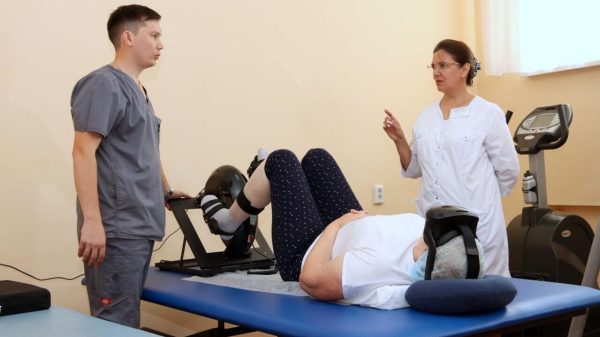They seemed, this time last year, almost unimaginable: the most severe restrictions imposed on a western nation since the second world war. “The whole of Italy is closed now,” was the shocked headline in Corriere della Sera the next day.
On 9 March 2020, a population of more than 60 million was ordered to stay at home, permitted to venture out only under specific circumstances – solitary exercise close to home, grocery shopping, going to the doctor – on pain of a €400-€3,000 fine.
Schools, universities and all non-essential businesses were shut down. Only supermarkets, banks, pharmacies and post offices could stay open. All travel within the country was banned, except on health or other urgent grounds.
Graphic: Europe’s lockdowns
But within days, much of the continent had followed suit. By 18 March, half the population of Europe, more than 250 million people, were in lockdown, with cases of coronavirus doubling in some countries every three, or even two, days.
And a year later, with some countries only recently relaxing second or sometimes third lockdowns and others still contemplating extensions, the extreme measures first imposed in Italy a year ago on Tuesday no longer seem so shocking.
Apart from a brief summer break, much of continental Europe has been without some its most defining customs for the best part of 12 months: loitering on cafe terraces, lingering over restaurant lunches, greeting with a kiss on both cheeks.
Italy cases
In their place have come new habits – the heresy of takeaway coffee, internet shopping, elbow bumps. Some novelties are welcome: especially in southern Europe, a mass of hitherto irksome bureaucracy has moved, at least partially, online.
Lockdown also changed European perceptions and priorities. Nearly 70% of people felt permanent change at work was inevitable, according to a poll after France’s first lockdown last year, with more than 80% wanting to work more from home in future.
Six in 10 felt their spending patterns had changed, with 74% ready to pay more for products made nationally. Half said they would value relationships with friends and family more. Nearly 40% wanted more space at home, a balcony, a garden.
“We have seen something similar after other major crises such as the financial crash or the 2015 terror attacks in Paris,” said Frédéric Daby of pollster Ifop. “On those occasions, inertia – status quo – has always proved stronger than desire for change.”
The collective psychology has certainly moved
This time may be different, Daby said. “Lockdown hugely accelerated trends that existed already. This has been a once-in-a-generation event, changing attitudes to consumer behaviour, jobs, homes. It’s too soon to say if these will prove permanent, civilisational shifts, but the collective psychology has certainly moved.”
The downsides of lockdown, however, have been equally marked – more so since a second, sometimes heavier round of restrictions returned after the summer. Germans, one recent study found, are struggling much more with mental health issues during their second lockdown than the first.
Researchers at the Saarland University found life satisfaction had “decreased significantly – worries, stress and depression have all increased,” the project leader, Dorota Reis, said. People’s assessments of society have also “changed drastically”.
During the first lockdown, Reis said, society was seen as coming closer together; now the feeling is it is “rather selfish, and drifting apart”. It was too early to say whether moods would improve when measures were lifted, she said, as happened last year.
The prolonged closure of schools and universities, and a likely collapse in graduate employment, has placed a particular strain on children and students bearing the burden of measures designed mainly to protect a much older generation.
A study in France noted a 50% increase in students showing “signs of psychological distress”. Dutch authorities have said some youth psychiatric wards are at full capacity, while during its second wave of infections Italy recorded a 30% increase in the number of young people attempting suicide or self-harm.
In Spain, by some distance Europe’s toughest first-wave lockdown, children suffered disproportionately, not permitted to leave their homes to exercise outside, go for a walk round the block, or even accompany their parents to the supermarket.
After Italy, Spain declared a state of emergency on 14 March, announcing a general lockdown for more than 46 million people. Non-essential shops and schools shut and the only non-medical reasons to leave home were grocery shopping or walking a dog.
France followed on 17 March, telling residents to stay inside except for grocery shopping and other essential tasks or exercise for an hour a day, while Germany opted for tough social distancing measures, but no formal lockdown, on 22 March.
The Dutch government opted for what it called a “smart lockdown” on 16 March, closing bars, restaurants, museums, schools and universities and banning large-scale events, and Belgium entered lockdown on 18 March.
Portugal declared its first state of emergency since the country’s return to democracy in 1976, allowing the government to deploy the army and set prices of basic goods, while the Czech republic and Poland went early, locking down on 12 and 13 March.
The continental outlier was Sweden, which refused to implement a full lockdown, instead banning gatherings of more than 50 people and asking, rather than ordering, people to observe physical distancing and work from home wherever possible.
A year on, it has become clear that if strict lockdowns are going to be imposed, they should come sooner on the infection curve than later. Italy went into lockdown only five weeks after its first case, when 7,300 infections were already confirmed.
A month later, it had 160,000 confirmed cases. Similarly, Spain’s strict national lockdown began when more than 4,200 Covid infections had already been diagnosed; by 5 April, its confirmed case total had overtaken even Italy’s.
Poland locked down after just 29 cases and experienced a far smaller first wave. The UK, meanwhile, which like the Netherlands had 800 cases on 14 March, locked down a week later – and by mid-April had three times as many infections as the Dutch.





















































Свежие комментарии